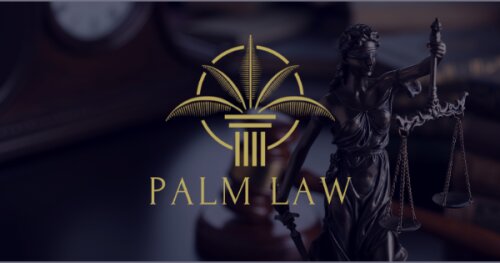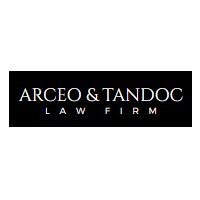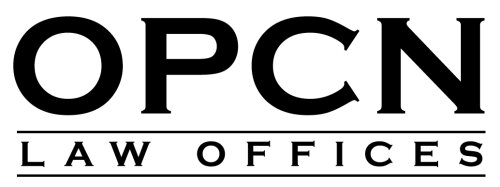Best Sanctions & Export Controls Lawyers in Quezon City
Share your needs with us, get contacted by law firms.
Free. Takes 2 min.
List of the best lawyers in Quezon City, Philippines

Dagsaan Monterde Castillo Law and Notary Public (DMC LAW)
15 minutes Free ConsultationAbout Sanctions & Export Controls Law in Quezon City, Philippines
Sanctions and export controls law involves a set of regulations that govern the trade and transfer of goods, technology, services, and funds across borders. In the Philippines, and specifically in Quezon City, these laws are designed to comply with international conventions as well as local national security and economic interests. The legal framework covers restrictions on the exportation of specific goods and services, certain financial transactions, and complying with global or regional sanctions, especially when dealing with specific countries, individuals, or organizations. These rules help prevent the proliferation of weapons, protect national security, support foreign policy goals, and curb activities such as terrorism and money laundering.
Why You May Need a Lawyer
Dealing with sanctions and export controls can be a complex process. You may need the assistance of a lawyer if you are:
- Exporting or importing goods and are unsure whether your product or customer is subject to restrictions.
- Facing an investigation or notice from Philippine authorities related to export or sanctions violations.
- Engaged in international transactions where counterparties are located in jurisdictions subject to sanctions.
- Unsure how to apply for licenses, permits, or clearances for your exports.
- Unaware of recent updates in sanctions or export controls law that may affect your business or personal activities.
- Seeking to appeal or challenge a government action such as asset freezing or denial of permits.
A lawyer with experience in this field can help navigate the requirements, handle legal risks, and communicate with government agencies on your behalf.
Local Laws Overview
In Quezon City, compliance with sanctions and export controls is primarily governed by national laws, but local authorities play a role in enforcement. Key legislation and regulatory frameworks include:
- Republic Act No. 10863 (Customs Modernization and Tariff Act or CMTA) - Regulates import and export procedures, including the classification of goods, prohibited or restricted items, and penalties for violations.
- Republic Act No. 9160 (Anti-Money Laundering Act or AMLA) - Contains provisions to prevent money laundering tied to international sanctions.
- Export Control Act (pending legislation as of 2024) - A proposed framework aimed at monitoring and regulating dual-use items and sensitive goods that could be relevant for weapons proliferation.
- Central Bank Regulations - The Bangko Sentral ng Pilipinas (BSP) issues circulars on transactions and financial flows involving sanctioned entities or jurisdictions.
- Executive Orders Implementing UN Sanctions - The Philippines often issues executive orders or administrative issuances to implement international sanctions mandated by the United Nations Security Council.
Enforcement is carried out by agencies such as the Bureau of Customs, Anti-Money Laundering Council, and the Department of Trade and Industry, often in coordination with local government units including Quezon City administration.
Frequently Asked Questions
What are sanctions and export controls?
Sanctions are restrictions imposed by governments to prevent certain types of trade or financial transactions with specified countries, groups, or individuals. Export controls regulate the movement of goods, services, and technology to protect national security and fulfill foreign policy commitments.
Does the Philippines have its own sanctions list?
The Philippines generally follows United Nations Security Council sanctions and also enforces certain domestic restrictions under local laws and executive orders. There is no comprehensive public "Philippine sanctions list", but various agencies maintain lists of restricted parties.
Are all exports from the Philippines controlled?
Not all exports are subject to control. However, certain goods such as arms, dual-use items, high technology products, pharmaceuticals, and wildlife products may require permits or are outright prohibited.
What are dual-use goods?
Dual-use goods are items that can be used for both civilian and military purposes. These are often subject to stricter controls or licensing requirements due to security concerns.
What happens if I violate sanctions or export control laws?
Violations can lead to confiscation of goods, fines, loss of business licenses, and even criminal prosecution. The seriousness of penalties depends on the nature and extent of the breach.
Which government agencies oversee sanctions and export controls?
The Philippine Bureau of Customs, Department of Trade and Industry, Bangko Sentral ng Pilipinas, and the Anti-Money Laundering Council are the main agencies involved in enforcing these laws.
How can I check if a transaction or export is allowed?
You should consult with the Department of Trade and Industry or a qualified lawyer. They can help you review the nature of your goods or transaction, check applicable laws, and advise on licensing or permit requirements.
Can the local government of Quezon City get involved in enforcement?
Yes, while main enforcement is done by national bodies, local authorities in Quezon City may assist in investigations, raids, or inspections dealing with sanctions and export controls.
Do international companies in Quezon City need to comply with sanctions?
Yes, both local and international companies operating in Quezon City must comply with Philippine laws, including those on sanctions and export controls, regardless of parent company location.
Is legal advice necessary for routine exports?
For routine exports not involving sensitive goods or jurisdictions, legal advice may not always be crucial. However, if you are unsure, dealing with high-risk products, or exporting to sensitive regions, consulting a lawyer is strongly recommended.
Additional Resources
If you are looking for more information or require guidance on sanctions and export controls in Quezon City, the following organizations and agencies may be useful:
- Bureau of Customs (BOC)
- Department of Trade and Industry - Bureau of Import Services (DTI-BIS)
- Bangko Sentral ng Pilipinas (BSP)
- Anti-Money Laundering Council (AMLC)
- Philippine Exporters Confederation, Inc. (PHILEXPORT)
- Quezon City Legal Department (for local assistance)
- Relevant chambers of commerce and trade associations
Next Steps
If you believe you need legal advice or representation regarding sanctions and export controls in Quezon City, here’s what you should do:
- Gather all relevant documents, contracts, correspondence, and details related to your export, import, or financial transaction.
- List any specific questions or concerns you have, especially about products, destinations, or counterparties involved.
- Contact a qualified legal professional or firm in Quezon City that specializes in trade law, customs, or international transactions.
- Arrange for a consultation to have your situation evaluated and receive personalized advice on the applicable laws and next steps.
- Stay updated on any changes in the legal landscape by monitoring government advisories or consulting with your lawyer regularly.
Legal matters in sanctions and export controls can have serious effects on your business and personal liability. Taking timely action and seeking professional assistance is the best way to ensure compliance and avoid risks.
Lawzana helps you find the best lawyers and law firms in Quezon City through a curated and pre-screened list of qualified legal professionals. Our platform offers rankings and detailed profiles of attorneys and law firms, allowing you to compare based on practice areas, including Sanctions & Export Controls, experience, and client feedback.
Each profile includes a description of the firm's areas of practice, client reviews, team members and partners, year of establishment, spoken languages, office locations, contact information, social media presence, and any published articles or resources. Most firms on our platform speak English and are experienced in both local and international legal matters.
Get a quote from top-rated law firms in Quezon City, Philippines — quickly, securely, and without unnecessary hassle.
Disclaimer:
The information provided on this page is for general informational purposes only and does not constitute legal advice. While we strive to ensure the accuracy and relevance of the content, legal information may change over time, and interpretations of the law can vary. You should always consult with a qualified legal professional for advice specific to your situation.
We disclaim all liability for actions taken or not taken based on the content of this page. If you believe any information is incorrect or outdated, please contact us, and we will review and update it where appropriate.
















